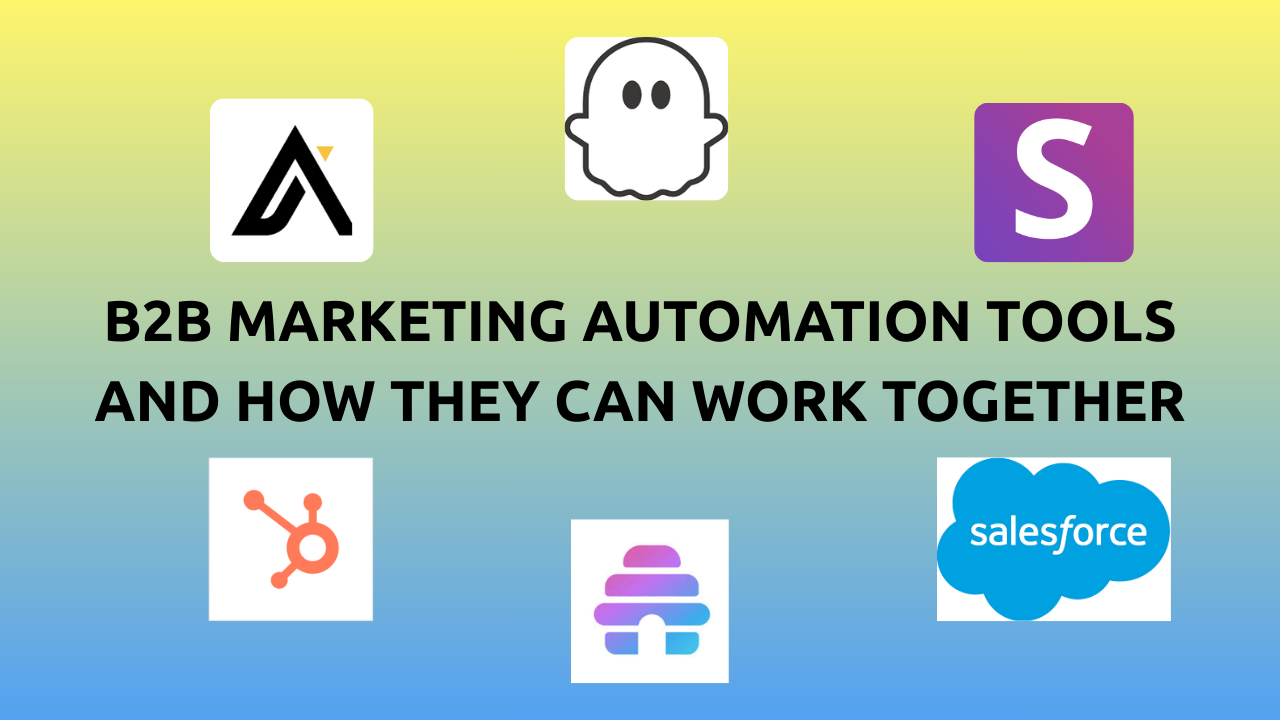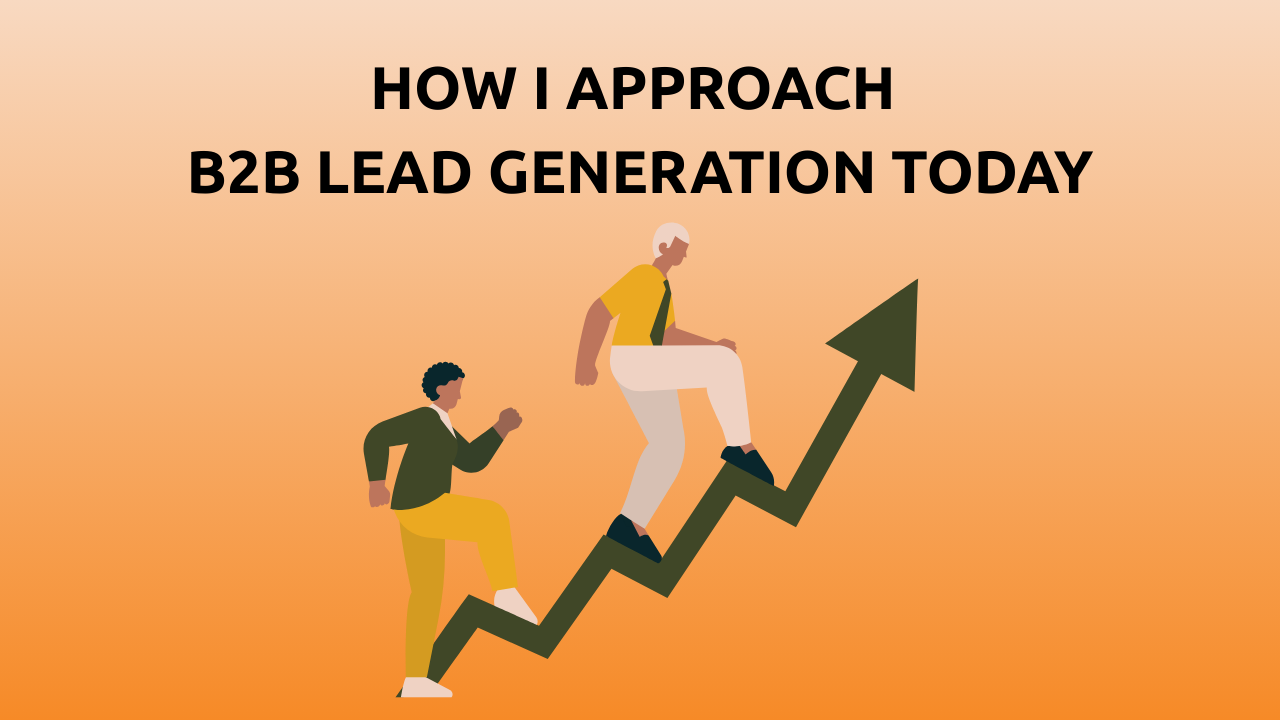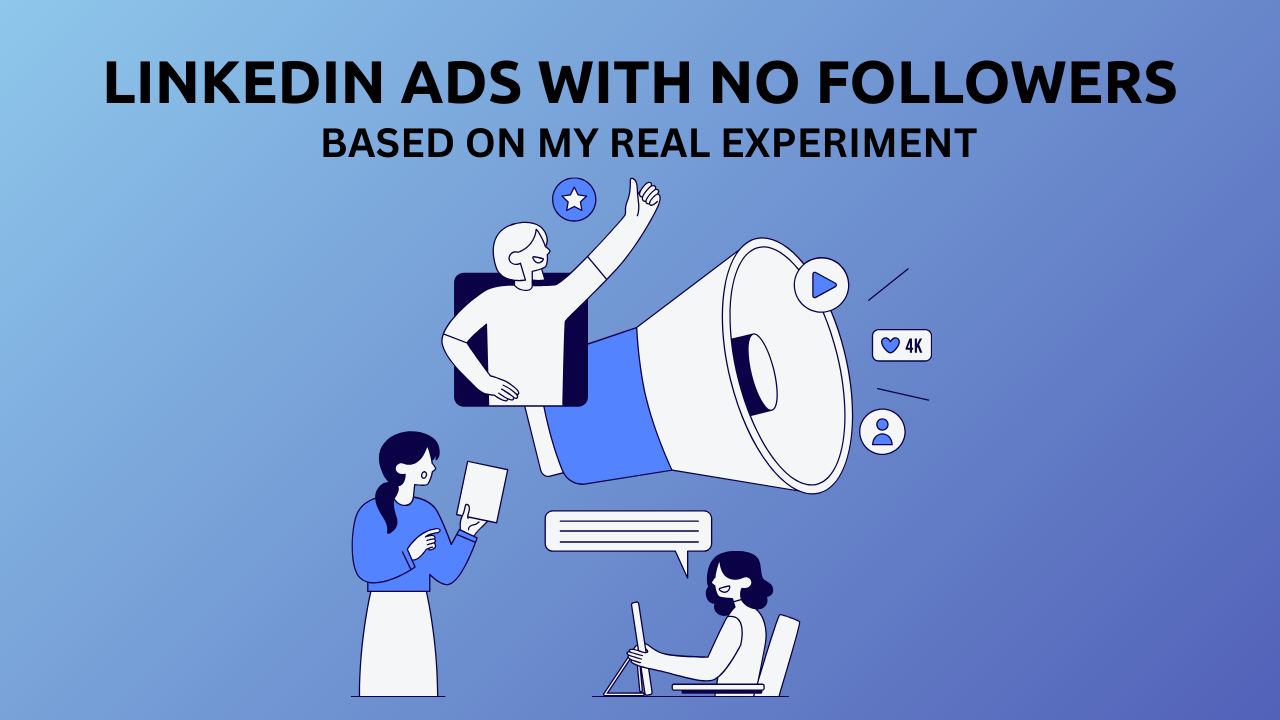8 ways to learn marketing skills (from beginner to pro)
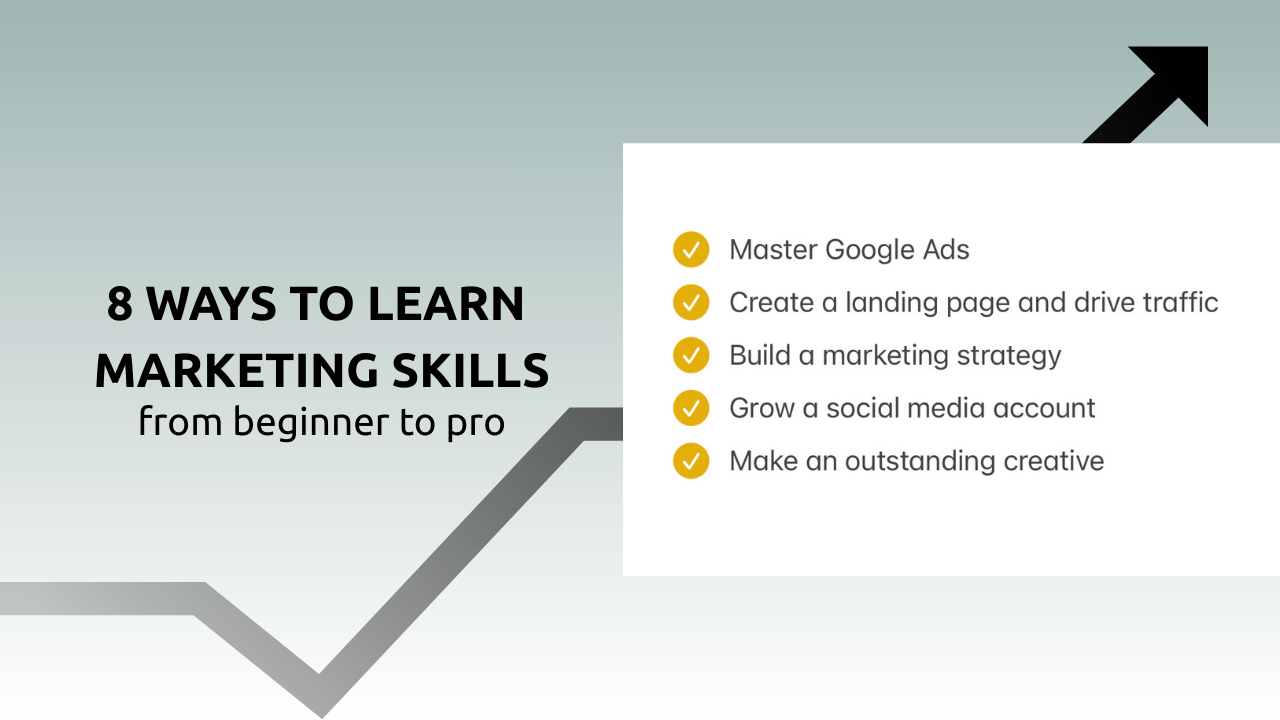
Digital marketing, content marketing, search engine optimization, brand awareness, and market research, so many fancy words people are using nowadays, and sometimes it might feel like it's so overwhelming to just process what all that is.
When I just started learning marketing, I understood neither of these words, and it took me a long time to learn.
When I was writing this article, I was thinking about myself and what I'd have liked to read when I just started my marketing journey, because I could not find anything that would really help me at the time.
It's important to notice that this article is not only for those who are just starting but also for those who understand that they lack knowledge in specific areas and don’t understand where to start.
I’m not a learning guru. I’m a person who is facing challenges in my marketing job regularly and tackles them as I go. I’m going to share how I optimize my learning process and what steps I follow.
Here are my 8 steps to learn digital marketing skills:
1. Create a list of what you need to learn
2. Start with general knowledge
3. Books
7. Stay updated
8. Build your portfolio & network
1. Create a plan/list of what you need to learn
Start with your goal.
Why do you want to learn marketing? Do you want to work for a big company like Apple, Nike, or Facebook? Do you want to be a freelancer and have it as a side project?
Or maybe you want to grow your own business, and you need to understand at least basic marketing skills to promote it?
For each of these goals, the path will be slightly different.
Write down your goal (don’t worry, you can change it later). It’s going to help you figure out the course of action.
The next step is to understand what exactly you need to learn. It might be hard at the very beginning of your career, because you don’t know what things are out there to learn. In that case, I’d recommend starting with the basics.
Let’s take General Marketing or Marketing Manager as an example. If you’re completely new to marketing, you need to start with the fundamentals.
I’d break it down to 4 main pillars:
- Strategy
- Consumer psychology
- Digital channels
- Analytics
In each of those categories, you need to identify what you already know and what there is to learn. Create a list.
Then try searching for different marketing positions and seeing what kind of marketing skills and knowledge companies are looking for.
If you don’t understand the terminology they are using, the first bullet point on your list will be: Learn marketing terminology. 🙂
Let’s take a look at the random job description I found on LinkedIn. I highlighted parts that can sound confusing to some people, and now I’ll give you an example of how to build a learning plan out of it.

Based on this example, here’s the learning plan I’d create.
- What is a marketing strategy? What kind of marketing strategies exist? How do you develop a marketing strategy? ➡️ Google, ChatGPT.
- What is a brand voice? How to develop a brand voice? ➡️ Google, ChatGPT, book.
- How many marketing channels exist? ➡️ Google (articles), ChatGPT.
- Digital marketing, email marketing, partner co-marketing ➡️ Google (articles), ChatGPT.
- HubSpot, JetNet ➡️ explore platforms.
- How to organize a webinar? ➡️ Google (articles).
- Case study examples ➡️ Google.
This could give a basic structure and understanding of where to begin. Learn in layers, not all at once.
The more you read about it, the more you will understand how much there is to learn 😂.
2. Start with general knowledge
You need to understand what fundamentals are. You are going to use it as a skeleton and then add things on top of it.
In my opinion, that’s the most efficient way to learn marketing, and I wish somebody had told me that when I just started.
Here’s how I see this "marketing skeleton" structure.
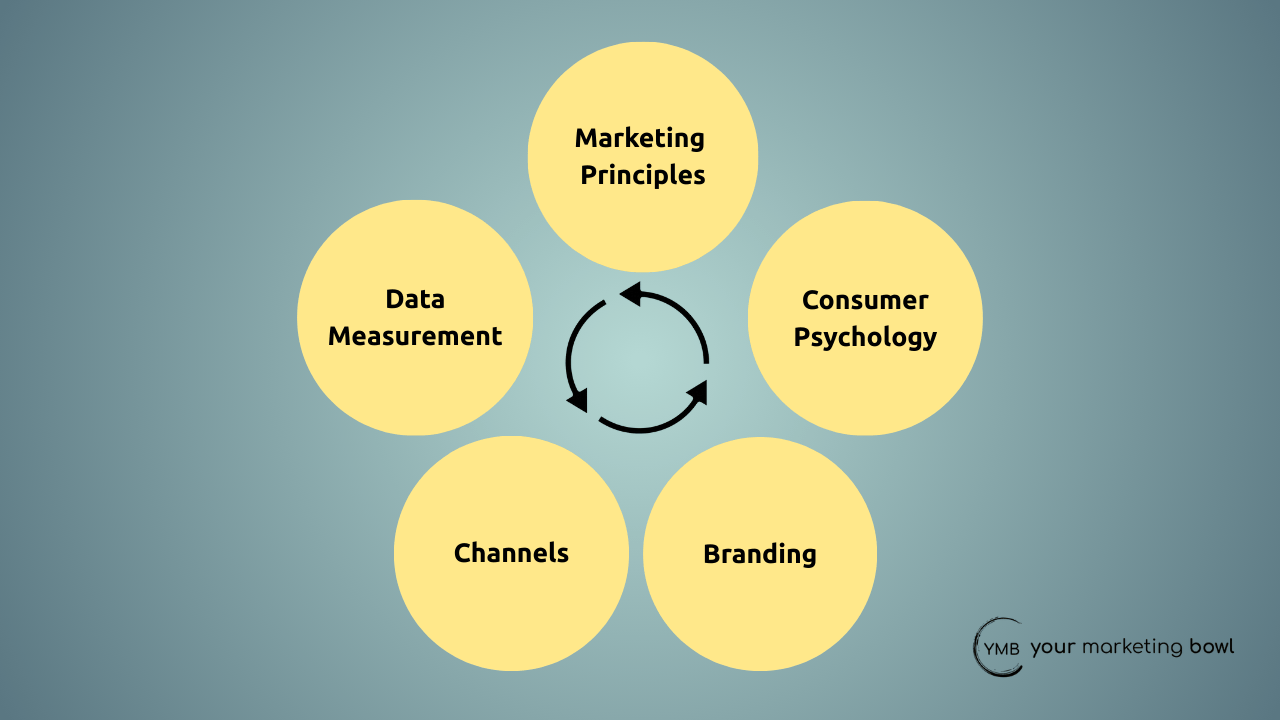
Let’s dive a little bit deeper into each one of them!
Core Marketing Principles
If you study the main principles, it will help you to understand what marketing is based on.
This is the very first step you should take in your learning, because that’s going to give you an answer to the question, “Why are we doing what we are doing?”
The main principles you should study first are:
- The 4 Ps of Marketing: Product, Price, Place, and Promotion.
- Marketing funnel: Awareness → Consideration → Conversion → Retention.
- Positioning and Differentiation → How you stand out from competitors.
- Target audience and Segmentation → Who are you marketing to?
I will not describe each one of them here, because there is a bunch of information about that online. I would not skip this step in the learning process, because everything you do later will affect these principles.
Consumer Psychology
Studying human psychology and understanding the reasons behind our buying behavior can help you a lot with building marketing strategies and optimizing your campaigns.
It’s important to differentiate that you are learning these skills not to sell as much as you can, but to know what kind of messaging, channels, and concepts to use to find the right customers for your product and show its value to the potential client.
Where do you learn this? You can start with my article, which briefly describes the main concepts of consumer behavior to get the idea of how to get and analyze this information.
The main source of that knowledge for me is books. Keep reading, and I will share some good recommendations later on.
Branding/Messaging
Branding starts with creating a brand (obviously). That means crafting a logo, figuring out the tone and the brand’s values, and determining how you are going to communicate these values to the audience.
Start by browsing some information on this topic and exploring how brands are built and what stands at the core of it.
After the initial creation stage, we need to come up with a unique value proposition (UVP). That will explain how your product is better and/or different from your competitors and why people should use your product and not somebody else’s.
Conducting marketing research and analyzing your audience helps a lot with this.
Storytelling comes next. When you have your UVP ready, you need to deliver this through the suitable messaging and channels. Believe me, there is a whole science behind delivering the right message in the right way to the right people through the right channels. Don’t neglect it.
Channels
At this stage, you need to learn about the channels that exist for promotion. The main ones are social media marketing, email marketing, paid ads (Google, Meta, and LinkedIn), SEO, print, events, TV, and PR.
As you can see, there are a lot. You don’t have to learn all of them at once. Start with the ones you find the most interesting and important at the moment. Later on, you will expand your knowledge and expertise.
Data Measurement
You need to identify what the most crucial metrics are and how to collect and analyze them. That’s a very big step. You need to understand the difference between vanity metrics (likes, followers) vs. impact metrics (sales, leads) and master tools to operate this data.
The tools you should start with are Google Analytics, Search Console, Ahrefs, HubSpot, and Hotjar. There are many, many more, but these will give you the basic understanding of the main processes and metrics.
3. Books
As I mentioned before, books are a great way to learn about human psychology and basic marketing principles. Here are my top 3 marketing books.
Decoded

This book talks a lot about people’s behavior and what stands behind our buying decisions. It also provides a lot of examples from real life of companies applying science in their marketing in order to benefit their organization.
After reading this book, you will also understand why YOU buy what you don’t need or didn’t even think about. So I definitely recommend this one to anyone.
Hooked

This book mostly explains the social media platforms’ tricks that make people stay in the app. The author talks about how social media evolved and how companies created new ways to keep people scrolling.
For example, the implementation of endless scroll significantly increased the average time people spend in the app, because they don’t have time to pause and ask themselves if they want to keep scrolling; they just do.
The same goes for push notifications. They are made to remind you about the app and build anxiety around FOMO (fear of missing out).
Contagious
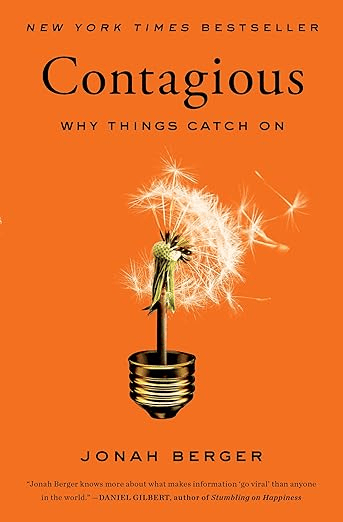
This book answers the question of what makes things popular. It also talks about word-of-mouth marketing and why people are vocal about some products and completely silent about others, and how social influence shapes everything from the cars we buy to the clothes we wear to the names we give our children.
I got a lot of unexpected insights from this book, and it definitely should be on your reading list.
4. Learn by Watching (YouTube & Free Courses)
The good news is that there is a lot of free content out there that you can explore. The hard part is to figure out what is good-quality content and what is not.
Start watching free courses from trusted resources first.
Here are some platforms that you can trust:
- Google Digital Garage
- HubSpot Academy (inbound, email, social)
- Meta Blueprint (ads)
Some of them might feel like surface-level ones, but it’s great for the start. Go from there and then see what kind of information you lack.
Explore different YouTube channels and find YouTubers that you like and that “match your vibe.” I will give you some channels to check out, but I’d strongly recommend finding a person that you will enjoy watching.
YouTube channels:
- Ahrefs (SEO)
- Analytics Mania (everything about Google Analytics and Tag Manager)
- Modern Millie (Social Media Growth)
5. Learn by Doing (Practical Projects)
Learning by doing is the best way to learn for me. That’s how I actually figured out the majority of things and learned to take responsibility for the work I do.
It’s also the hardest way to go (for me personally), because it requires more time, energy, concentration, and sometimes money investments. That’s probably why it is the most effective learning method.
What can it be?
Start with simple things: a small blog, newsletter, or social media account. Set a goal of growing an account to X number of followers or having X number of subscribers to your newsletter, etc.
If you want to learn specific tools like Facebook Ads or Google Ads (GA4), set up an account and try it out on your own: run a test ad campaign with a small budget, write copy and A/B test headlines, create your own simple website, and connect all the analytics possible to it.
Start an internship if you feel like you are not comfortable with doing anything on your own yet.
In my opinion, that is the best way to learn things and understand how everything works from the inside.
6. Analyze what other people/companies do (reverse engineering).
That you need to do consistently. The question is how to do it.
Start with the brand you admire. Pick a company that you have followed for many years and start analyzing what they are doing. What kind of content do they post? How is this content filmed? What kind of message are they trying to spread?
Check their social media paid ads (Facebook Ad Library). All that information is free to reach.
Analyze their website. How is it built? Do they partner with somebody else?
There are tons of ways to go. You just need to know what questions to ask and where to look for answers.
Regularly check resources like Marketing Examples and Ogilvy to check various marketing ideas and ad examples. That’s going to spark a lot of ideas for you.
7. Stay Updated
The marketing world is changing fast, and updates are coming out every day. If you want to be a good specialist, you need to stay in the loop and follow everything that’s happening.
I know that by the time you are reading this, you are probably thinking, "OMG, this all takes so much time."
It does. But it’s necessary for your growth. Also, if you truly like marketing, it won’t feel like a chore but more like an exploration.
So what do you do to stay updated?
- Follow marketing newsletters, podcasts, and blogs (like the one you’re reading right now)
- Try to surround yourself with people from the same niche to share insights and news you discovered
- Browse for news: recent AI tools, TikTok trends, Instagram and Google algorithm updates
That is going to help you extend your knowledge significantly.
8. Build Your Portfolio & Network
Start by documenting your projects, even small ones. That will also help you to overcome imposter syndrome and see what your strong sides are.
If you feel comfortable, share your learnings on LinkedIn or Twitter. That will showcase your expertise and might increase your chances of being hired or of being offered a position by a recruiter (even if you are not actively looking for a job).
Attend various marketing and networking events. Pick them carefully, because a lot of them are not worth going to, but if you are lucky, you can meet the right people there.
Talk about what you do with other people; let them know what your area of expertise is, and who knows, maybe they will need you one day.
Closing thoughts
The path of learning is not fast, nor is it easy. But if you truly want to be a great marketing professional, I believe you can find time and energy to learn, explore, and grow.
Remember that you need to be a lifelong learner, because this process never ends, and you will never know everything, but you can try to learn enough to feel confident about your expertise.
The content on this site is for informational and entertainment purposes only and should not be taken as financial advice. For full details, see the disclaimers section.

Subscribe for marketing advice
I'd actually give a friend
Join our mailing list and never miss a story.

